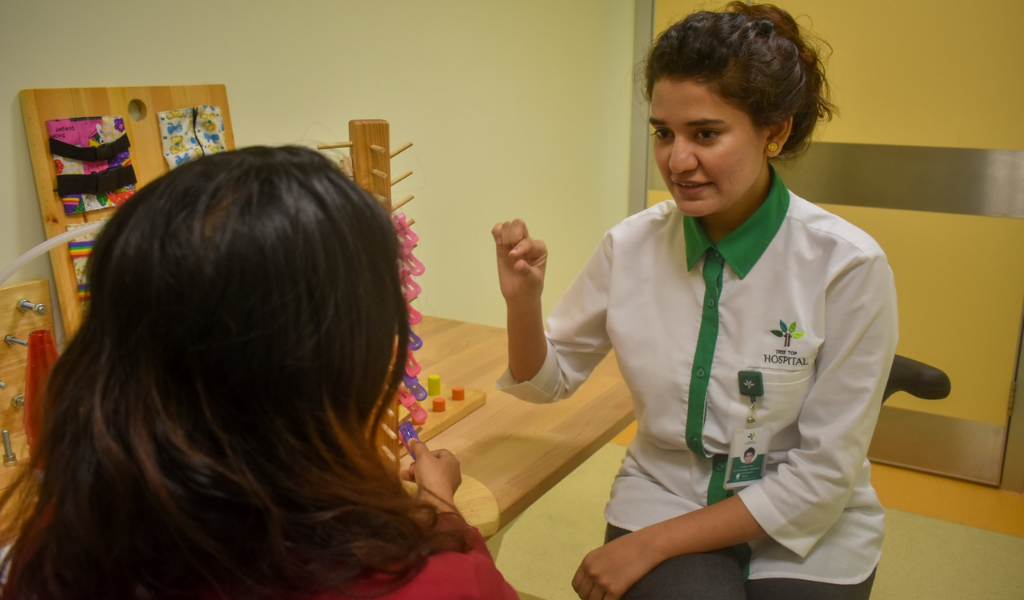
Leave No One Behind, Always Remember That
As we celebrate Autism Awareness Day this month, it is important to understand the struggles of a person on the spectrum in order to provide a support system for them and build a society where we can coexist.
What is Autism?
Autism is a lifelong developmental disability that affects how people communicate and interact with the world
Autism spectrum disorder (ASD) is a developmental disorder, meaning that symptoms are present early in life. However, ASD is possible to diagnose at any age
According to the Diagnostic and Statistical Manual of Mental Disorders (DSM), the labels Autism, Asperger’s, and Pervasive developmental disorder (PDD) are placed under the umbrella term “autism spectrum disorders” (ASDs).
Although the prevalence and complexity of behavioral problems vary between ASDs, the three broad areas that remain the same: social communication, social interaction, restricted repetitive patterns of behavior or activities, and sensory problems are the list of difficulties autistic people may share.
People with ASDs can show a wide variety of abilities and deficits. There is no such thing as a typical individual with ASD because one person may have been severely affected by all of the symptoms while another may appear to be less symptomatic.
In addition to the primary features, people with autism may have comorbid mental disorders like ADHD, anxiety or depressive disorders, and sensory processing or sensory integration dysfunctions that affect their behavior and daily activities.
Causes of Autism
Even though the exact causes of Autism are still unknown, there have been huge advances in the neurosciences, which gives us a clearer understanding of the nervous system and how the symptoms of autism are interconnected.
The collaboration of parent-medical professionals could ease the treatment for those with the condition. If the parent or teacher notices any symptoms of Autism or the child is ‘different’, it is important to seek a professional’s help to assess and start the treatment as early as possible. Early and intensive treatment is found to work best for early recovery.
Although, we should remember that each individual is unique and the recovery varies from individual to individual
A professional team that will participate in the treatment of autism will mainly consist of, Pediatricians, Occupational therapists / Behavioral therapists, Speech therapists, Physiotherapists, Psychologists, and Special educators.
What is the care given at Tree Top Hospital?
Tree Top Hospital provides treatment plans that include a comprehensive evaluation to thoroughly understand your child, family, and requirements and goals.
Once this is completed, the therapist can assist your child and family with developing skills in many areas.
The treatment plans include:
Sensory integration therapy.
Activities of daily living training.
Play therapy.
Social skills training.
Cognitive-behavioral therapy
School-based interventions.
Recreational and vocational rehabilitation.
Motor skills training- gross motor functions, muscle strengthening, gait and endurance training.
Fine motor skills including handwriting.
Attention and listening skills
Development of play skills
Motivation to communicate
Social understanding
Understanding of language
Expressive communication skills
Social skills
Non-verbal communication - including means of expression and gestures
Conversational skills
Concept skills
Communicative aids and devices if appropriate
Tree Top Hospital also provides Occupational therapy and Speech therapy programs. Occupational therapy is to make sure that the individual with autism can participate in community life by minimizing the difficulties in daily activities at home, school, workplace, and the community and maximizing their independence. Assessing sensory integration functioning in children with autism is necessary to plan and implement effective interventions in occupational therapy.
A speech therapy program begins with a speech-language pathologist (SLP) evaluation to assess the person’s communication strengths and challenges using various assessment scales and tests. From this evaluation, the SLP creates individual goals for therapy. Common goals may include improving spoken language, learning nonverbal skills such as signs or gestures, or learning to communicate using an alternative method (such as pictures or technology).
Individuals with autism are people who need the support of the whole community, their parents, and healthcare workers to excel in life. Let us remember to “Leave no one behind”
More information can be gained by contacting 3351610 or emailing care@treetophospital.com